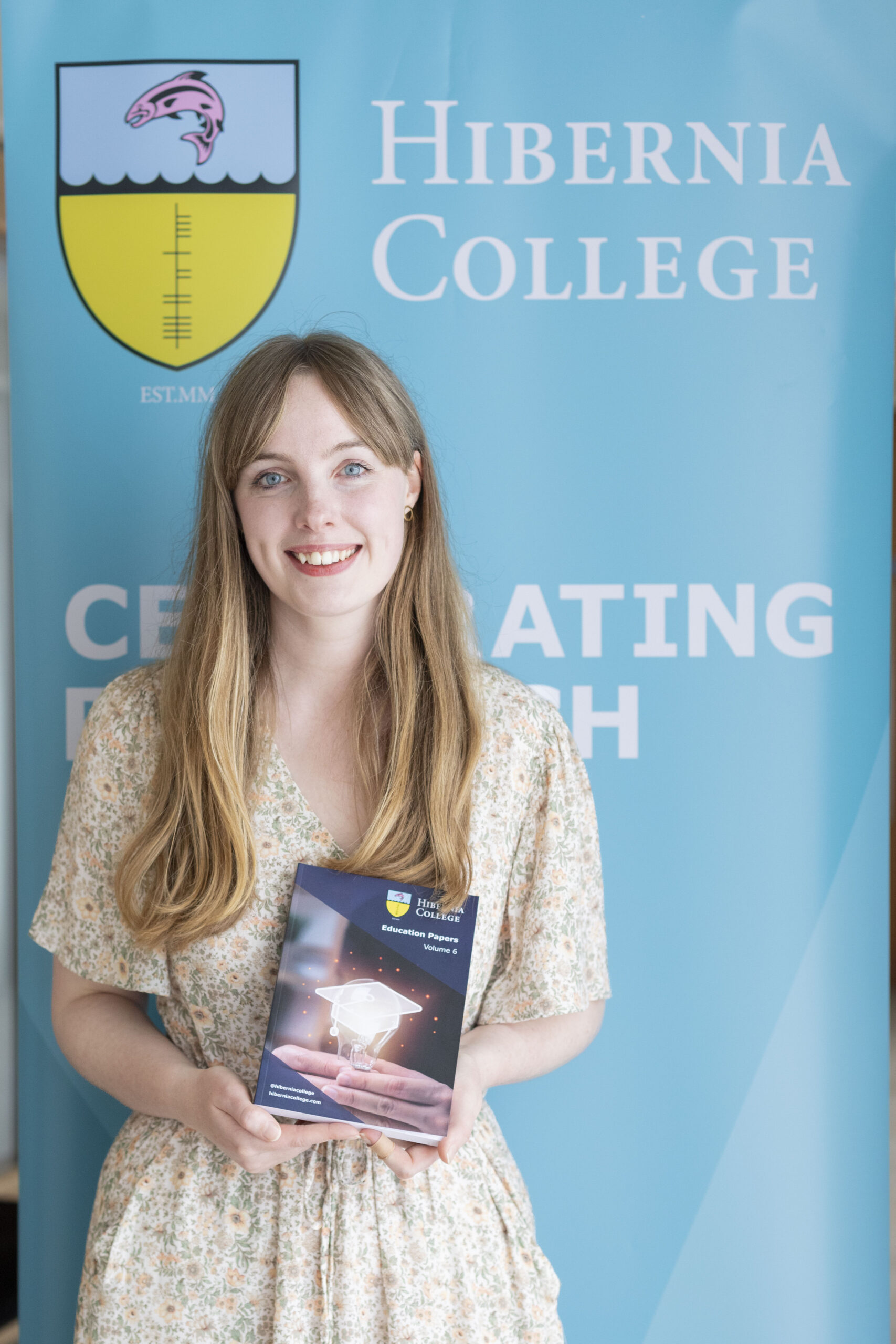
Research profile
Hazel Scully
PME in Primary Education
Hazel was the recipient of the Hibernia College Research Prize in her cohort. Hazel is currently enjoying her role as a SET teacher with Junior Infants in a DEIS primary school in Cork.
Research Paper Title
Visual Literacy and the ‘Looking and Responding’ Strand Unit: Primary Teacher Perspectives
Abstract
This dissertation researched teacher perspectives on the concept of visual literacy and the ‘Looking and Responding’ strand unit. This study aimed to investigate whether ‘Looking and Responding’ activities in Visual Arts support student engagement and student verbal skills, and to explore teacher interpretations of visual literacy. Results show that ‘Looking and Responding’ activities promote student engagement and increase student verbal skills. Findings demonstrate a clear uncertainty about the concept of visual literacy amongst respondents.
Biography
Hazel Scully grew up in Dublin and graduated with a joint honours degree in Classical Civilisation and French from Trinity College Dublin in 2016. She spent some time working in the area of natural health and wellbeing before moving on to diverse roles, such as a nanny, gallery assistant and bookseller in New York for two years. Upon returning to Ireland, Hazel worked in the area of children’s art education in art museum settings in Cork. Graduating with First Class Honours in the Professional Master of Education (PME) in Primary Education in 2023, Hazel was the recipient of the Hibernia College Research Prize in her cohort. Hazel is currently enjoying her role as a SET teacher with Junior Infants in a DEIS primary school in Cork.
Research motivation
Can you tell us a bit about your research project?
My research project was entitled ‘Visual Literacy and the Looking and Responding Strand Unit: Teacher Perspectives’. My aim was to discover whether ‘Looking and Responding’ activities increase students’ verbal skills and student engagement. I was also curious to discover teachers’ definitions of the concept of visual literacy, as it is alluded to in the Visual Arts curriculum through the ‘Looking and Responding’ strand unit, but no explicit definition is given.
What motivated you to undertake this research?
I was motivated to undertake this research due to time spent working as a gallery assistant and tour guide in an Irish art museum. During this time, I noticed excellent engagement amongst primary-aged children when ‘Looking and Responding’ activities were used in the gallery setting. From this, I became interested in teacher perspectives on teaching the ‘Looking and Responding’ strand unit, and general attitudes towards the concept of ‘visual literacy’ amongst primary school teachers in Munster and Leinster.
What impact has it had on your practice?
During the 2023-2024 academic year, I worked in SET with Junior Infants. While my focus was mainly on early literacy intervention, I incorporated visuals into my lessons to enhance student engagement, as well as student’s verbal skills — particularly with EAL pupils. For the 2024-2025 school year, I will be working as a mainstream Second Class teacher, and I am looking forward to dedicating time every week to ‘Looking and Responding’ activities during Visual Arts lessons to promote engagement and verbal skills and increase students’ overall visual literacy.
How important do you feel research will be in your future practice?
I think research will be important in my future practice, particularly with the new primary curriculum’s broader focus on the arts subjects. It will be interesting to discover how visual literacy is incorporated into the new curriculum and if more suggestions and ideas for teaching pupils to become visually literate will be included for primary school teachers. Hopefully, further research in this area will also lead to more continuous professional development opportunities for primary school teachers. As modern society is and continues to be highly visual, I think research in this area will continue to expand and develop.